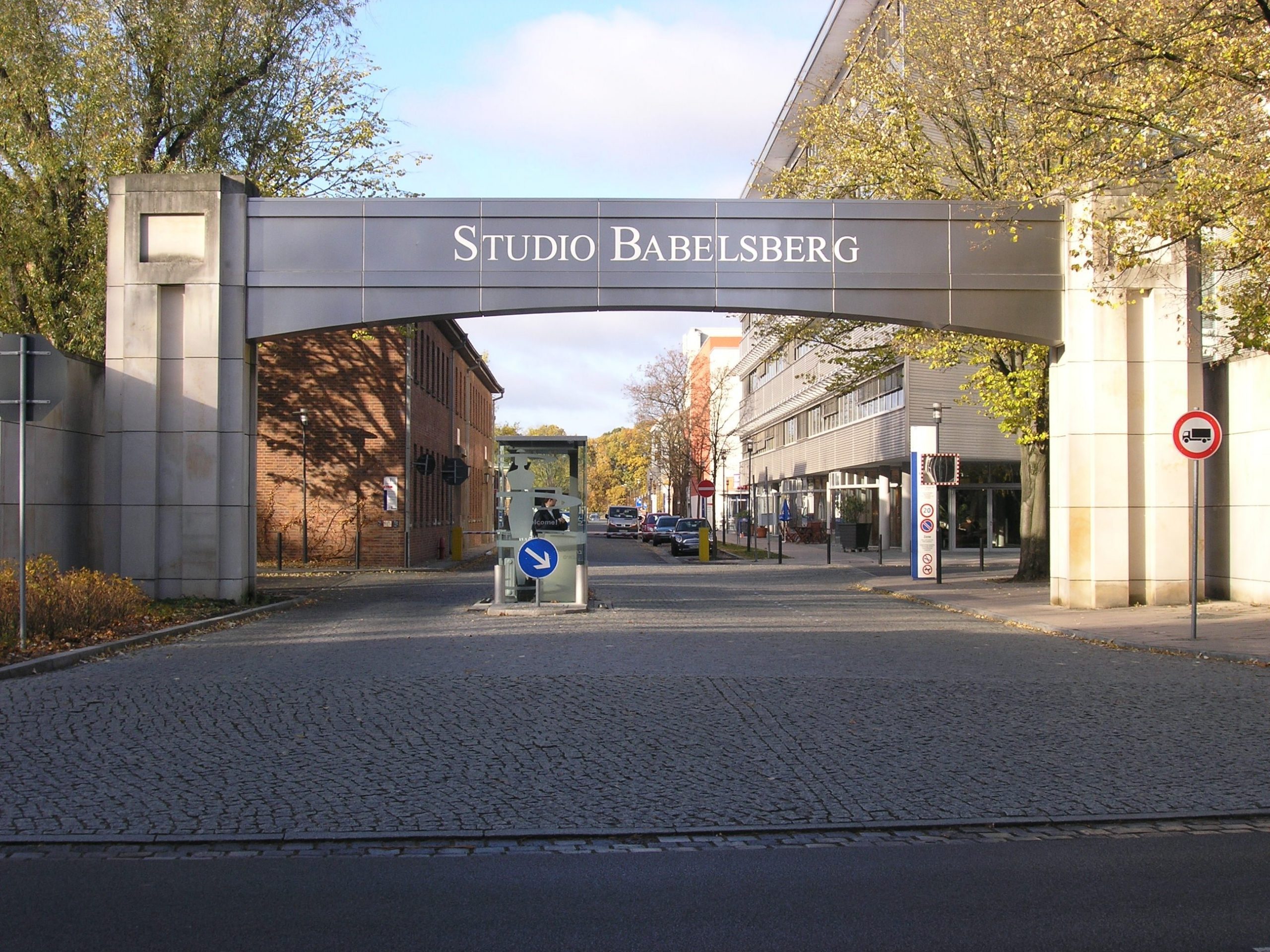Film shoots starting, reforms to the film funding system, and films as a powerful economic factor - A look ahead to 2024
Glamour, creatives and conflicts - this year’s Berlinale was held in politically difficult times and ended with controversial statements about the conflict in the Middle East during the gala awards ceremony. However, before this, festival-goers were treated to a wide range of films over 10 days. Director Mati Diop received the Golden Bear for her documentary Dahomey with its anti-colonialist message. Apart from providing a showcase for the international film industry with such guests as Martin Scorsese, jury president Lupita Nyong’o, Cillian Murphy and Isabelle Huppert, the Berlinale also shone a spotlight on the film industry here in the capital region. Matthias Glasner’s Dying received the Silver Bear for Best Screenplay, and Potsdam-based director Andreas Dresen’s film From Hilde, With Love about the resistance fighter Hilde Coppi celebrated its world premiere as one of the Competition titles during the Berlinale.
This was also an opportunity for the film region of Brandenburg to be showcased at the Berlinale again. Last year, 100 film and television productions were shot in the state of Brandenburg. Dr. Ballouz, Browser Ballett, Doppelhaushälfte, GZSZ, Löwenzahn, Polizeiruf, In Gottes Namen, the second season of Kleo, Fritzie – Der Himmel muss warten: if you’d like to know which films and series were shot last year and where this took place, you can find this out by scrolling through the 2023 film map.
Film productions competing for locations and funding
“Although the film production sector may be concentrated in and around Potsdam, the effects of a successful media landscape can nevertheless be felt throughout the whole region. I’m pleased that Brandenburg continues to be a nationally and internationally important film hub whose diverse possibilities for shooting are regularly used by major industry players. This means that all of the regions in the federal state are now benefiting from this development,” Brandenburg’s Minister of Economic Affairs Jörg Steinbach said.
In his address, Steinbach also called for a successful conclusion to planned reforms of the film funding system. The current law expires at the end of 2024. There haven’t be any tax incentives until now. Film productions go to Budapest, Prague or the studios in London because of low production and personnel costs as well as favourable film funding concepts. A competitive concept is needed on both a national level as well by the film region of Brandenburg. The fact that the reform is urgently needed hasn’t escaped the attention of the State Minister for Culture Claudia Roth. The currently existing funding system has been criticised for its excessive bureaucracy, inefficiency, limited resources and numerous conditions.
Roth presented the draft reform two days before the beginning of the Berlinale. The three main elements are as follows: that film funding will in future be administered centrally by the German Federal Film Board (FFA); there will be investment obligations for streamers and other VOD services; and tax incentives. Negotiations are now underway with the federal states, but not all of them have yet come to the point where they are supporting the key issues paper. The plan is for the new funding system to come into force at the beginning of 2025.
Film as an economic factor
The Medienboard’s review of the past 30 years of its funding activities shows how successful film funding has been in the capital region. “The fact that the capital region has become Germany’s No. 1 film hub and internationally one of the most sought-after film locations is thanks, on the one hand, to the creativity of the filmmakers and, on the other, to the political and financial support from the two federal states,” says Medienboard’s CEO Kirsten Niehuus.
No less than 16 Medienboard-backed films and series were screened in the official programme of this year’s Berlinale. In past three decades, projects received total funding of 690 million euros which in turn resulted in around three billion euros being spent on film shoots in the region - from German award-winning films such as Good Bye, Lenin! and The Lives of the Others to international hits such as Homeland, Bridge of Spies, Grand Budapest Hoteland Tribute von Panem. According to the Medienboard, it’s “lights, camera, action!” 15 times every day. This translates into a 5.5-fold regional effect: every euro as subsidy generates 5.5 times as much investment in the region.
Studio Babelsberg’s upturn in fortunes after US strikes
Filming has also resumed on the Babelsberg studio lot following the strikes in the US film industry. Andy Weltman, CEO of Studio Babelsberg AG, would also like to see a reform to the film funding system. Last year’s strikes by the screenwriters and actors left their mark on the film studios in Babelsberg, meaning that they didn’t handle any major productions shooting there. However, 2024 has now seen Hollywood coming back with director Wes Anderson’s new film The Phoenician Scheme and the thriller Control with actor James McAvoy.
But Brandenburg itself can also provide the backdrop for films - from the historic old town to the hip, trendy neighbourhood. Kirsten Niehuus: “Nowhere else are there so many different locations so close together that you can spend the same day shooting a bathing scene at a lake, a fire on a sound stage and then a party scene at night in a Berlin club.” So this means the capital region can now look forward to hosting the crews of director Wolfgang Becker with The Hero of Friedrichstraße Station, The Physician 2 by Philipp Stölzl or Yellow Letters by İlker Çatak. The latter had competed for an Oscar in the Best International Feature Film category with his film The Teachers’ Lounge.
Films are an economic factor in the region, a creator of new jobs, tourism and a driver of innovation for other sectors - the MediaTech Hub Potsdam pools this expertise and supports other sectors in opening up new business opportunities. The more media-driven our lives become, the more influential and innovative media technologies are in all areas.
Image Credit: Studio Babelsberg AG
About MTH Blog
The media technologies of the future are already being used today – not only in the entertainment sector, but also in a wide variety of industries. Christine Lentz meets up with tech enthusiasts, established companies and researchers for our monthly MediaTech Hub Potsdam blog to tell the stories behind the innovative business models.



